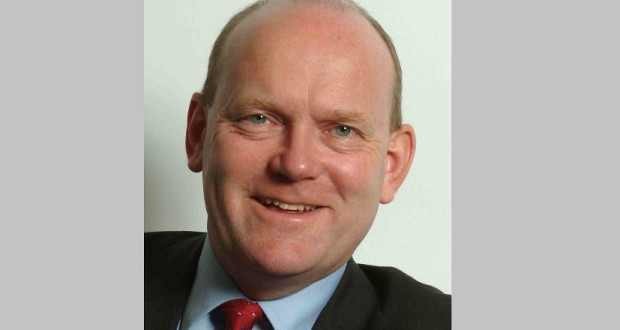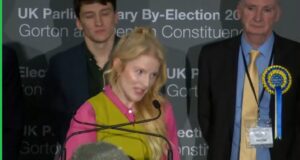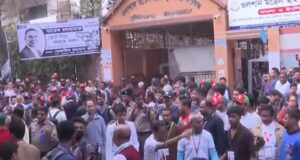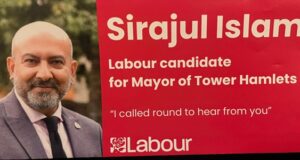John Biggs, Member of the Greater London Assembly (GLA) for the City & East constituency, will be stepping down in May 2016. He has been a GLA member since 2000, and will have spent the last year of his GLA term as both a GLA Member and mayor of Tower Hamlets (two full-time jobs).
They City & East constituency is made up of the London Boroughs of Tower Hamlets, Newham and Barking & Dagenham, as well as the City of London. So far it has always had a Labour Assembly Member (AM) – with a high majority. However, although Labour candidates have been returned in East London in recent years when they have not faced much opposition, there is widespread disillusion with the Party. If an alternative candidate or candidates stand, Labour could face a hard battle to keep the seat.
It is perhaps with this in mind that the Labour Party has already begun the process of choosing a candidate to contest the seat next May. The Party has drawn up a panel of 18 potential candidates, who are all now seeking nominations from Labour Party bodies in order to get onto the shortlist. Labour Party members in the City & East constituency will then vote in a postal ballot to select the eventual Labour candidate.
The panel includes a wide variety of wannabees, some of whom are well known in East London. There are two well known candidates from outside Tower Hamlets. Unmesh Desai is a Newham Councillor who gained a profile during the 1980s because of his involvement in the anti-racist Newham Monitoring Project. Since becoming a councillor, however, he is widely seen to have lost popularity among members because of his support for Newham Mayor Sir Robin Wales. Murad Qureshi has been an Assembly Member since 2004 – not for a GLA constituency, but on the list of Labour Party candidates who are added to the Assembly to bring party representation on it into proportion with the popular vote. He has been an energetic Assembly Member – one of the few Labour politicians who was prepared to be critical of UK involvement in the invasion of Iraq when it happened, and specialising in housing, transport and the environment. He had a longstanding involvement with BRAC (an international poverty relief NGO) and is passionate about cricket. His campaign material shows that he understands that being on the GLA is not like being a councillor but is, rather, a campaigning role.
[Adverts]
However, most interest in Tower Hamlets will centre around the candidates who have some connection with the borough.
Ashton McGregor is a former councillor in Tower Hamlets, where he was Jim Fitzpatrick MP’s campaign manager for a while. He is no stranger to trying to find a new career as a public representative, having tried to become Labour’s candidate for Darlington (in northern England) in the 2010 elections.
Bill Turner – previously a Tower Hamlets Councillor and now a Newham one – contributed to the then Cllr Helal Abbas’s dossier of complaint which the Labour Party used to over-rule local members’ choice of Lutfur Rahman to be the 2010 mayoral candidate.
Cate Tuitt was, as Catherine Tuitt, a Tower Hamlets Councillor who caused an amount of controversy in the local Party.
Three of the panel members lost their Council seats in the 2014 elections.
Motin Uz-Zaman had been deputy leader, but his hostility to Lutfur Rahman didn’t cut it with his Mile End voters, who threw him out in favour of Shah Alam of Tower Hamlets First. He is also a great supporter of John Biggs.
Carlo Gibbs suffered a similar fate: not only was he hostile to Lutfur Rahman, but he was also widely seen as having been central to the Party’s deselection of Anwar Khan in Bow.
Abdal Ullah lost out in St Dunstan’s to Mahbub Alam of Tower Hamlets First. After the courts overturned the Tower Hamlets mayoral election result and removed Lutfur Rahman from office, and particularly since John Biggs narrowly squeaked past Rabina Khan, Abdal has made himself indispensible to John Biggs. This close association with Two Jobs John may improve Abdal’s standing in the eyes of the Labour Party higher-ups, but it may cut less mustard with the electorate.
Gibbs and Ullah are campaigning hard to get on the shortlist. Gibbs is criticising the Tories’ record on housing and transport – without acknowledging that Labour’s record on these issues was questionable. He is also stressing his own competence in getting things done – which is not really relevant on a body with no executive power.
Ullah is pushing his experience on the Metropolitan Police Authority and his companion experience as a Tower Hamlets Councillor and Cabinet Member. Again, he is uncritical of Labour’s record and stresses his past achievements without making it clear how they would supposedly help equip him for the very different role of Assembly Member.
Loyal to Labour over last year’s crucial General Election vote, the electorate may well consider that Assembly Members have more prestige than power and turn to a more clearly independent voice in the Assembly elections. The three who lost in 2014 are all Labour loyalists, but Labour cannot be complacent and choose whoever the party machine would most like to see as an Assembly Member. The Party has to choose someone who can win an election contest spread over four London boroughs. There’s no front runner yet.
[Adverts]
 East London News A Force for the community…
East London News A Force for the community…




